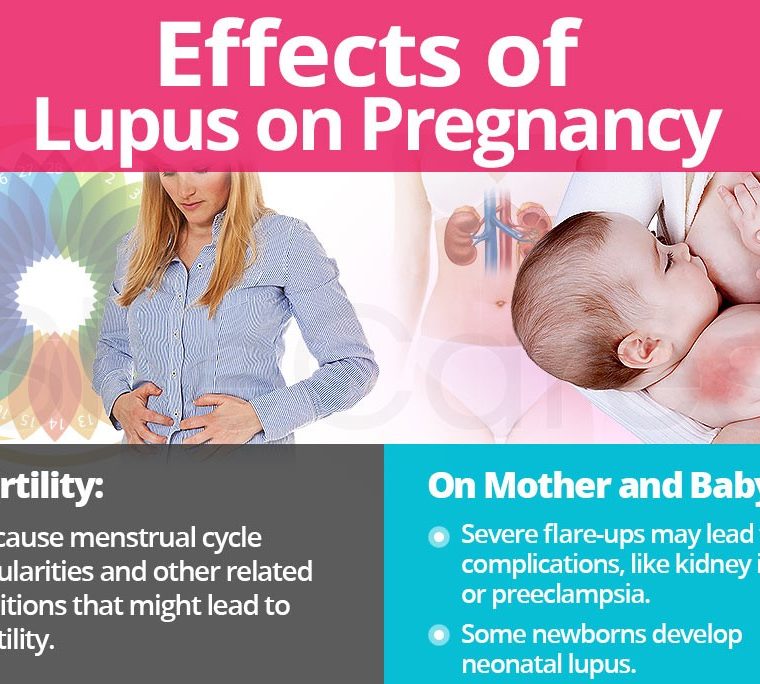Lupus after pregnancy refers to the occurrence of lupus or the worsening of lupus symptoms after a woman gives birth. Lupus is an autoimmune disease that can affect various parts of the body. It occurs when the immune system attacks healthy tissues.
Pregnancy and the postpartum period can trigger lupus flares or the development of new lupus symptoms due to hormonal changes and stress on the body.
Common symptoms of lupus after pregnancy may include joint pain, fatigue, rashes, fever, hair loss, and other flu-like symptoms. Treatment options may include medications, lifestyle changes, and other supportive measures.
It is crucial for women who have lupus or a history of lupus to have regular prenatal care and to work closely with their healthcare providers to manage their condition during and after pregnancy.
If you are diagnosed with lupus after pregnancy, you should consult a rheumatologist. They are medical specialists trained to diagnose and treat autoimmune diseases like lupus. Your rheumatologist can develop a treatment plan to manage your lupus symptoms and monitor for potential complications.
Consult an expert and skilled rheumatologist like Dr. Monzur Khoda for lupus after pregnancy to ensure you receive the best care possible. Dr. Monzur Khoda is a proficient rheumatologist in Dhaka, Bangladesh, specializing in diagnosing and treating autoimmune diseases such as lupus. He has experience treating patients with lupus, particularly those with pregnancy-related complications.
Moreover, Dr. Monzur Khoda will listen to your concerns and answer your questions clearly and understandably. He can perform a thorough evaluation to assess the extent of your lupus and identify any complications that may have arisen after pregnancy.
In addition, Dr. Monzur Khoda may develop a comprehensive treatment plan that considers your individual needs and goals. This may include medications, lifestyle modifications, and referrals to other specialists as needed.
Now, let’s know,
How does lupus affect the baby and mother after pregnancy?
Lupus is a chronic autoimmune disease that can affect various organs and tissues in the body. If you have lupus and become pregnant, there are certain risks to both you and your baby.
Pregnancy can cause changes in lupus activity, and lupus can also affect pregnancy outcomes.
Here are some ways that lupus can affect women after pregnancy:
1. Maternal complications: Women with lupus are at increased risk of developing certain complications during pregnancy, such as preeclampsia, premature delivery, and miscarriage. They may also experience lupus flares during or after pregnancy.
2. Breastfeeding: Women with lupus can usually breastfeed their babies without problems. However, some medications used to treat lupus may pass into breast milk. So, discussing with your doctor which medicines are safe to take while breastfeeding is essential.
3. Postpartum depression: Women with lupus may be at increased risk of developing postpartum depression after giving birth.
If you have lupus and are planning to become pregnant or are already pregnant, working closely with your doctor to manage your lupus and monitor your pregnancy is essential. With proper care, most women with lupus can have a healthy pregnancy and baby.
Let’s see,
How to take care of lupus after pregnancy?
If you have lupus and have just given birth, it is essential to take care of yourself to manage the potential complications that may arise.
Here are some tips on how to take care of lupus after childbirth:
- Follow-up with your doctor regularly:After giving birth, it is essential to have regular check-ups to monitor any lupus flares or complications.
- Get plenty of rest:Rest is essential for managing lupus symptoms. So, get plenty of sleep and naps when possible.
- Manage stress:Stress can trigger lupus flares. So, try to minimize stress as much as possible. Try relaxation techniques such as meditation, Yoga, or deep breathing exercises.
- Eat a healthy diet:Eating a balanced and nutritious diet can help manage lupus symptoms and support overall health. Aim for a diet rich in fruits, vegetables, whole grains, and lean protein.
- Stay active:Regular physical activity can help manage lupus symptoms and improve overall health. However, talk to your doctor before starting any exercise program, and avoid high-impact activities that could cause injury.
- Take prescribed medications:If you take medications to manage lupus, take them as your doctor prescribes.
- Ask for help:It is essential to ask for help from family and friends, particularly in the early weeks after giving birth. Feel free to delegate tasks or ask for support with childcare or household chores.
Does lupus become severe as age increases?
Lupus is an autoimmune disease affecting people of any age, gender, or ethnicity. The severity of lupus can vary from person to person and may fluctuate over time, depending on various factors such as treatment adherence, lifestyle changes, and disease progression. It is a chronic condition that can persist for many years or even a lifetime.
There is no direct correlation between age and the severity of lupus. But some studies have suggested that the risk of complications and severity of symptoms may increase with age. This may be because the immune system tends to weaken as we age, making it more difficult for the body to fight infections and illnesses.
Additionally, older individuals with lupus may be more likely to have other health conditions, which can exacerbate their symptoms and increase the risk of complications. These can include cardiovascular disease, diabetes, osteoporosis, and kidney disease.
However, it is essential to note that not all individuals with lupus will experience worsening symptoms or complications as they age. With proper medical care and self-care, many people with lupus can manage their symptoms and maintain a good quality of life, regardless of age.
Conclusion:
With proper care and monitoring from a professional rheumatologist, most women with lupus can live healthy life after pregnancy. It is crucial for women with lupus to follow up with their doctors regularly, manage stress, get rest, eat a healthy diet, stay active, take medications as prescribed, and ask for help when needed.


Awesome
Very good